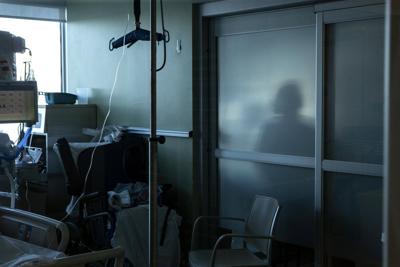TORONTO - A growing number of people are filing complaints to Ontario's patient ombudsman office, which says it wrapped a record number of investigations last year including a case where a person was discharged by a hospital without being told they had cancer.
The Patient Ombudsman's annual report released Thursday says there were 4,886 new complaints filed between April 2024 and March 2025, a 10 per cent increase over the year before. It also notes it resolved 4,863 complaints, some of which carry year-over-year.
The report shows that many of the patients don't feel heard and some left the emergency room prematurely, without followup. Others raised issues with use of force with challenging behaviours, as well as a lack of trauma-informed obstetrical/gynecological care, which ║├╔źtvreported on in June.
ÔÇťIf you're not communicating well in health care, then you are really setting yourself up for some problems,ÔÇŁ says patient ombudsman Craig Thompson.
He says complaints have been continuously rising since his office opened in 2016, which he attributes in part to an increase in public awareness.
But Thompson also says it's troubling to see that recommendations made in past reports have not been implemented in some cases.
Close to 60 per cent of the latest grievances are about hospitals, a slightly larger proportion than the year before. It also handles complaints about long-term care homes, home care, and community surgical and diagnostic centres.
The office has the authority to conduct investigations and it says six were completed, resulting in 40 recommendations to the health-care organizations to address systemic issues. The report details some of them:
ÔÇö The report states a patient went to the emergency department with a fracture in August 2021 and underwent tests that indicated they had cancer. According to the investigation, a new family doctor saw the results a year later and communicated the diagnosis. The cancer had metastasized to the patient's bones, causing ÔÇťunrelenting pain.ÔÇŁ The ombudsman lists 10 recommendations, including a pathology report audit and update to the hospital's quality review process.
ÔÇö Another investigation described an Indigenous patient who filed a grievance about how a hospital managed an investigation into their allegation of unwanted touching by a personal support worker. The ombudsman found that "despite the hospitalÔÇÖs best intentions, its investigation was not in keeping with trauma-informed practice and did not follow the hospitalÔÇÖs own policies."
ÔÇö The ombudsman's office says it investigated a complaint from a 40-year-old who left the emergency department after nearly three hours in significant pain with a suspected ectopic pregnancy because "she was subjected to a harsh and humiliating environment where communication was terse and task-centred." It also says no attempt was made to deter the patient from leaving against medical advice. A number of policy and education-related recommendations were made, such as training emergency department staff on patient-centred care.
Resolutions sometimes also involve helping facilitate an apology, researching solutions and making suggestions to the organizations involved.
Thompson says the hope is that the annual reports spotlight systemic issues that need attention, but in some cases it appears that message is not being received.
He notes that the number of people who filed complaints about obstetrical and gynecological care increased by 29 per cent from the previous year. Their experiences touch on pregnancy complications and miscarriages, sexual assaults, cancer care and delays in diagnosis.
ÔÇťThese gaps in care highlight the need to improve patient-centred and trauma-informed care for patients who are pregnant and giving birth,ÔÇŁ the report states.
Christine Shea, program director of the Masters of Science in Quality Improvement and Patient Safety at the University of Toronto, said it's not surprising that compassionate communication is lacking if you consider how stretched thin the health care system is.
Shea notes 29 per cent of the hospital complaints were about quality of care.
"In a very pragmatic sense, if we begin to address quality of care, we might find that issues around communication drop at the same time," Shea said.
"That's where we should be focusing our attention."
In response to the ombudsman's findings, a spokesperson for the Health Ministry says it expects every hospital and health-care partner to uphold the highest standard of patient care.
"There are over 600,000 interactions with OntarioÔÇÖs publicly funded health-care system every day. One complaint about the safety of care is too many and that is why the Ontario government has taken steps to strengthen patient safety, and the patient experience in health-care institutions across the province."
This report by ║├╔źtvwas first published Nov. 13, 2025.
║├╔źtv Press health coverage receives support through a partnership with the ║├╔źtv Medical Association. CP is solely responsible for this content.















































